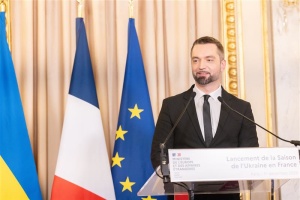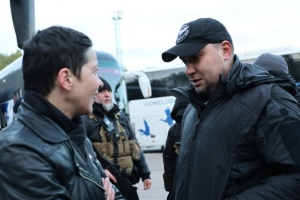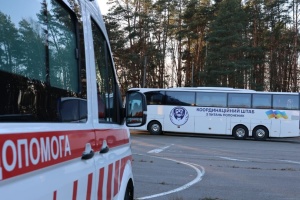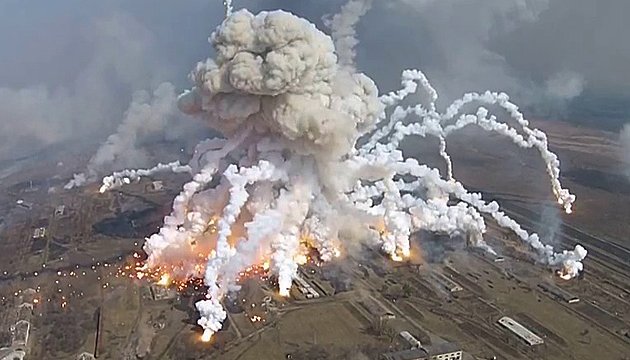
Ten risks in 2017 that Ukraine has managed to avoid
There is no life without risks. There is no progress without risks. They existed even when Ukraine was actually a neo-colony of Russia, and they exist now when Ukraine is free. These risks are just different. In Soviet and then CIS slavery we were little worried about external threats, and the world did not consider us a self-sufficient state and did not demand that we understand it. In the winter of 2013, we were worried only about the Yanukovych regime and Berkut riot police officers, and at that time we could not comprehend the depth of the dangers that we would have to face.
Then we understood it. However, we did not know what to do with all this knowledge. Finally, we gradually learned how to contain these risks, and we still learn it now. The year 2017 has given us many lessons.
1. A threat of Russian offensive. Before the war, we already got used to trench warfare, but we are consciously aware that it will not end just like this. Every year we are waiting for escalation.
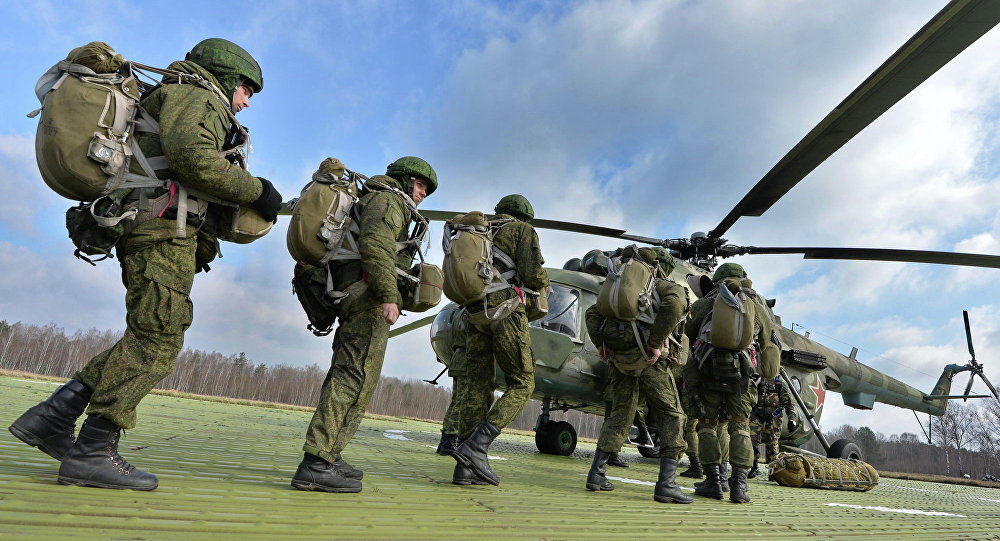
The most alarming was the end of summer and the beginning of autumn when Russia began Zapad 2017 wargames in Belarus. Only 12,000 military personnel were reported there, but, experts said, 230,000-240,000 people were actually involved in all directions, as well as over 10,000 units of military equipment, about 100 aircraft and about 40 ships and submarines.
We were anxiously awaiting the Russian offensive from the borders of Belarus and, at the very least, the frank Anschluss of this so far independent state. To some extent, it can be said that annexation took place as the Russian FSB took control of the border of Belarus, and there are plans to create new airborne military bases there. It is also evident that a significant part of the troops that participated in the military exercises remained at the northern borders of Ukraine.
Unfortunately, in 2018, the risk of an attack from Russia will not decrease. And, most likely, it will be even bigger. This is evidenced by statements by Secretary of the National Security and Defense Council of Ukraine Oleksandr Turchynov, General Yevhen Marchuk, intelligence data from Western countries. Just a few days ago, U.S. Marine Corps Commandant Robert Neller warned the U.S. military that a large-scale war was approaching. Obviously, the permission of the White House to start arming Ukraine is also a consequence of the awareness of the threat hanging over the world.
The threat can be removed only by the Kremlin's hope that Surkov's plan will work and Ukraine will give permission to seize its territory without any fight. So far, we (with our complacency or its imitation) leave Russia chances for it.
2. Trump and Putin's friends in the power of European countries. At the beginning of the year, this threat seemed very serious. The new U.S. president has persistently shown his respect for Putin, and he was even surrounded by supporters of the Kremlin madman. The pessimistic scenario was predicted by the French election - between moderately pro-Moscow Sarkozy and very pro-Moscow Marie Le Pen, the ranking of neo-Nazis in Germany and Austria was growing. Finally, the European Union left Britain.
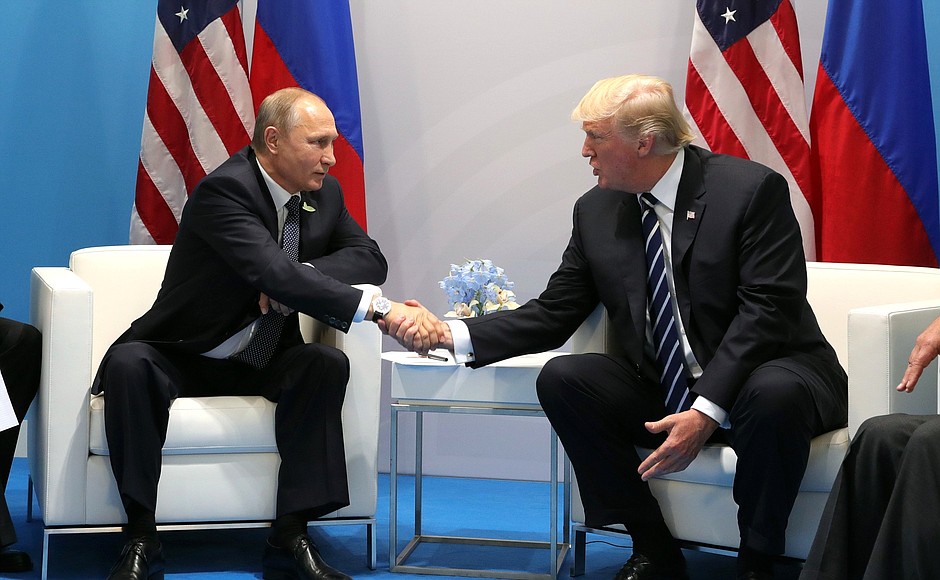
However, the reality was more optimistic than all forecasts. The allies headed by the new governments did not abandon us, sanctions against Russia were not canceled, they did not reject assistance, and they did not allow Lavrov's proxies to quickly return to the PACE. Volker's mission was also important. Despite all the fears, we received the visa-free regime and the Association Agreement with the EU. And this is a victory. A good idea was voiced in Germany at the end of the year - to bring relations with Ukraine to the level of relations with Britain after Brexit.
But the year 2018 will be very difficult. Putin's henchmen from Europe's radical parties raise their heads all the more, the European Union is in crisis, and the attention of the White House is distracted by Pyongyang. It is very important to prove to the West that it needs us in these difficult circumstances.
3. Terrorism and sabotage. For a long time, most Ukrainians felt safe in the deep rear, far from war. Europe observed terrorist attacks with anxiety, but at the same time with hope that this bad time would bypass our country. However, the year 2017 dispersed our illusions. Relative public peace (as far as it is possible during the war) was shaken by several high-profile terrorist attacks in various cities of Ukraine, including in the capital.

Russian saboteurs killed heroic Chechen Amina Okuyeva, the head of the intelligence unit, Maksym Shapoval, counterintelligence officer Oleksandr Kharaberiush, Russian fugitive politician Denis Voronenkov. The investigation into these crimes (except for the Voronenkov case) has almost stalled. There are currently no suspects in the murder of Pavlo Sheremet.
At the same time, there was a wave of subversive acts at ammo depots in Kalynivka, Vinnytsia region, Balakliya, Kharkiv region, and near Mariupol. The damage caused by them is enormous.
If we add here an agent of the Main Intelligence Directorate, who worked for a long time with the prime minister, then it all looks like a signal for the SBU and other special services.
One group of risks triggered others. The impunity of the killer saboteurs encouraged bandits from organized criminal groups. According to the police, 1,243 intentional murders and assassination attempts were recorded this year. All this caused irreparable damage, but, despite the hopes of the enemies, it did not affect the foundations of society.
4. An attempt of corruption revenge. The outgoing year seemed to be critical in this regard. Angela Merkel's comrade, Norbert Rottgen, stated that in Ukraine "corruption begins at the very top of government," while the French ambassador said that European partners were discussing the proposal about the need to suspend visa-free travel for Ukraine.
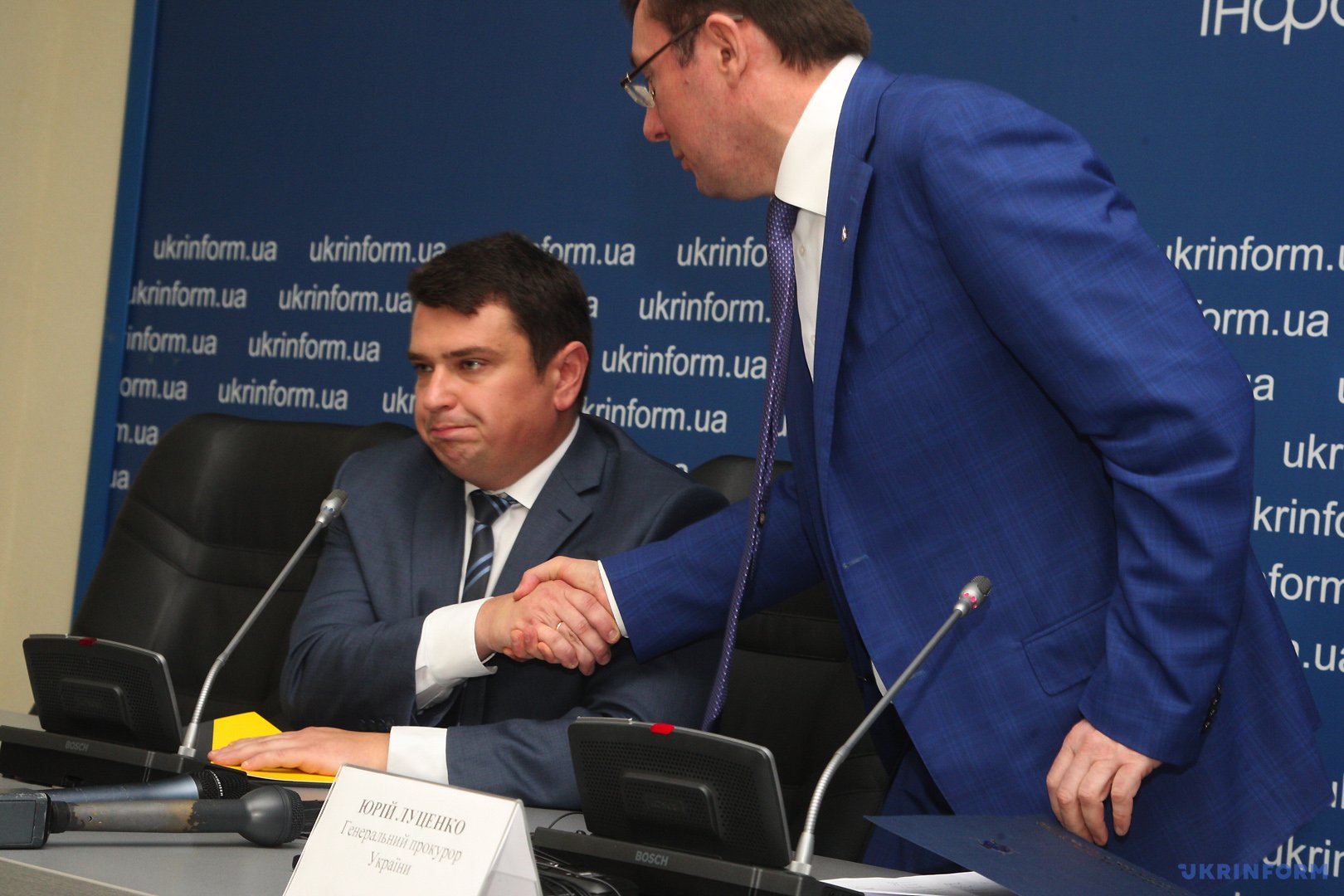
The apotheosis of the onslaught of fighters with anti-corruption agencies was a bill tabled in the Verkhovna Rada by the leaders of the parliamentary majority, regarding the actual deprivation of independence of the National Anti-Corruption Bureau of Ukraine (NABU). Prior to this, there was a "coup" in the leadership of the parliamentary committee on combating corruption, night-time interrogations and "declassification" of secret agents of the NABU by the Prosecutor General's Office, full lack of trust in the National Agency on Corruption Prevention and sabotage with the creation of the Anti-Corruption Court.
I cannot say that in 2017 the Ukrainian society successfully fought the risks of "corruption revenge." Without the intervention of European partners, without the threat of not seeing foreign loans and lethal weapons, our defeat in the war against corruption would be inevitable.
Ahead is the inevitable aggravation of the struggle between civil society and the ruling class, which got used to living according to old laws. It is believed that honesty and common sense will win in Ukraine.
5. The second front. It all began not even with the language article of the Law on Education, but with the sudden nomination by our closest strategic neighbor of the subject of the "Volyn massacre" and the rejection of "heroization of the Ukrainian Insurgent Army."
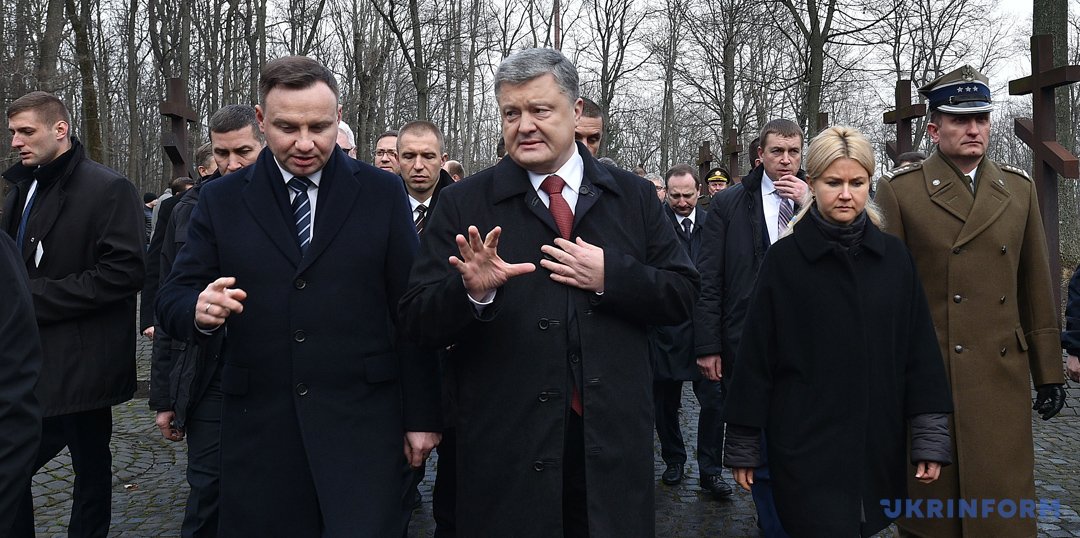
The conflict with historical subtext with Poland was resolved (due to direct negotiations between Duda and Poroshenko), whereas in relations with the current Hungarian authorities, the light at the end of the tunnel is still not visible. Head of the Mission of Ukraine to NATO Vadym Prystaiko acknowledged that Hungary not only does not seek to find a common language with Ukraine, but also "declares its readiness to fight until the end."
How should we do in this situation? Obviously, it would be superfluous to have enemies in the West, while fighting with Russia. However, we have to be careful with actions - the society will not understand this. Consequently, the risks remain. In order to avoid them, we will need maximum patience and balance next year.
6. Lack of progress in reforms. It turned out to be a very difficult year for the reform efforts of the government and the ruling coalition. The reader remembers the resistance of the opponents of changes in the health care system, how they opposed pension reform, and how long the issues of the judicial system were discussed. Land reform was not advanced, and politicians did not dare to start a new wave of privatization.
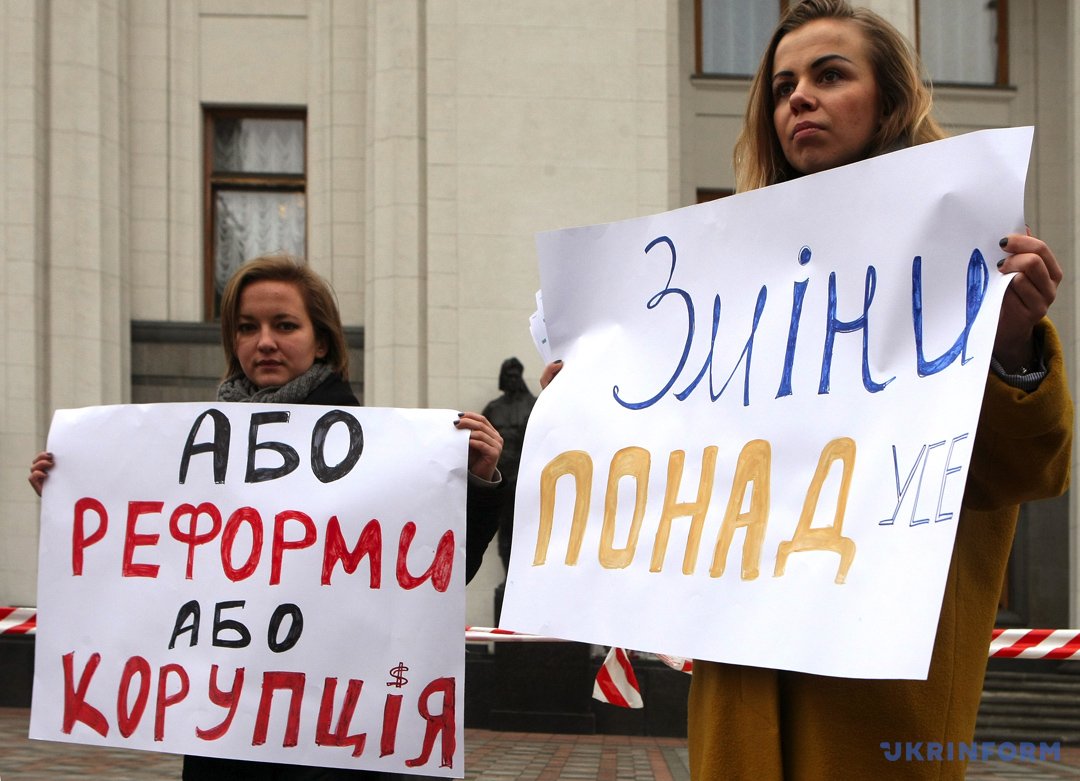
The schedule of tasks foreseen by the Association Agreement is fulfilled somehow with much effort. And this is good. However, against the background of the pro-European sentiment of society, we see such an archaic "innovation" (according to many experts) such as the "Buy Ukrainian" bill, which contradicts the Association Agreement with the EU.
A wave of populist arguments against reforms engulfed covered society. As an alarming consequence, sociologists noted a lack of acceptance of radical changes by many Ukrainians. According to the Razumkov Center, 56.9% of Ukrainians have a negative attitude to health care reform, the same percentage to pension reform, 52.3% to land reform, and 49.1% to judicial reform. However, the reason is not just in populism, but also in the realization that the whole burden of reforms will fall on the poor, because the rich are not interested in domestic medicine, education, or Ukrainian pensions.
7. An economic war. It was less visible than "fighting" in the information space. But its role was more significant. We gained at least one strategic victory on this front - a court decision in a lawsuit filed by Naftogaz against Gazprom. Economic sanctions against Russia were extended, which is a hybrid response to a hybrid war. With changing success, battles are underway around Nord Stream, where Russia tries to get the support of European business and where we still have strong allies, such as the United States.
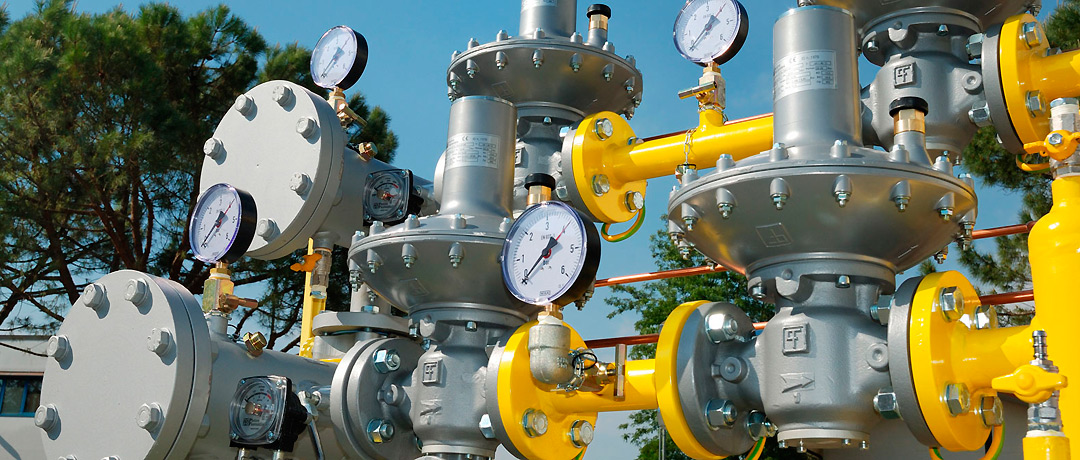
But all this is not yet overcoming risks, but only a delay. Ukraine still remains economically dependent on the former metropolis. Russian TVELs give us light at Ukrainian nuclear power plants, and Russian coal is supplied to Ukraine. Russian owners have strong positions in important economic sectors of Ukraine. Russian banks are able to shatter our financial system. Russian propaganda lying about Ukraine hinders foreign investment.
We rejoice in news from Russian experts that the Russian economy is threatened with a new recession. But the war also affects our economy. Our small victory in economic development, however, brings more light to our hearts than the hundreds of painful failures in the economy of the occupying country.
8. Cyber-attacks and information intervention. The year 2017 could be called the year of the beginning of the First World Cyberwar, if this war had not been launched by Russia long before that. And only this year, many secrets became apparent. The intelligence agencies of the United States and European countries got anxious, having analyzed the level of intervention of cybernetic and information weapons in the political and economic life of developed countries.

For the past three years, Ukraine has been very frivolous in this area. The first decisive step by the authorities was the blockade of the most widely spread Russian intelligence resources in Ukraine – Odnoklassniki, VKontakte, Yandex, anti-virus sites Kaspersky Lab and DrWeb.
We also experienced an unprecedented attack of the Petya A virus, disguised as ransomware. It affected 10% of all private, government and corporate computers in Ukraine, the National Bank, Chornobyl NPP, Boryspil Airport, 20 banks, supermarkets and cyber-markets, Ukrtelecom, Kyivenergo, and Ukrenergo. The virus attacked even computers in the Cabinet of Ministers.
In the end, the attack was contained, and predictions of repeated attacks did not prove true. According to the official version, critical infrastructure facilities in the country are protected from such attacks, but the Ukrainian Cyber Alliance warns against reckless rest on the laurels. We still do not have one powerful center for countering such attacks, whereas well-equipped, specialized "cyber troops," with a large number of contingents, were officially created in Russia.
9. Expectations of mass protests. Despite fears, they were not too numerous. Saakashvili's supporters, unlike the supporters of Tiahnybok two years earlier, even though they smashed windows in the October Palace, but they did not throw grenades outside the building of the parliament. By the way, this year, the largest mass protests (with the slogans "Get Foreigners Out of the Government") were organized by radical nationalists. But they do not see any threats in them for some reason, or they do not believe in it.
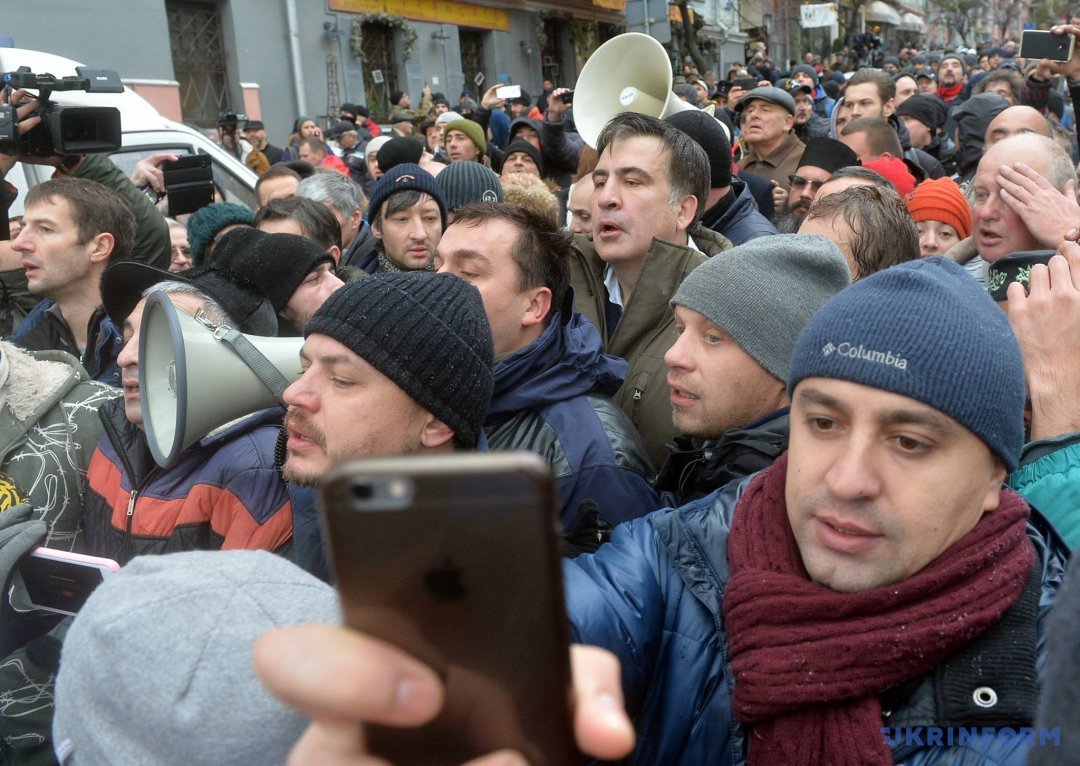
So far, all the "maidans" this year are not mass protests by the Ukrainian people, but only typical party rallies, designed for the media effect and mobilization of personal assets. And during the "tent confrontation" on Hrushevskoho Street and the so-called "breakthrough of the border," in my opinion, the National Police worked very well - the use of force was minimized. A statement by Interior Minister Arsen Avakov that, while choosing between bloody scuffles on the streets and "half-empty tents" he chose the latter, was not understood by the authorities, but such a position did not allow the conflict to develop.
10. A threat of loss of controllability. The situation in the country in 2017 was negatively influenced by signs of an increase in uncontrollability in the state.
This concerns the actual absence of a ruling coalition in the Verkhovna Rada, as a result of which situational alliances of the previously unconquerable political forces became frequent. This also led to an increase in parliamentary absenteeism. It seems that the reform laws are pushed through either with threats of deprivation of parliamentary immunity or with bits of a budget cake. The heads of three ministries and numerous central departments and state corporations are in a suspended state, serving as acting heads. The National Bank of Ukraine is also searching for a new manager. The Central Election Commission staff is not updated, and those who worked under Yanukovych order music at the Constitutional Court.
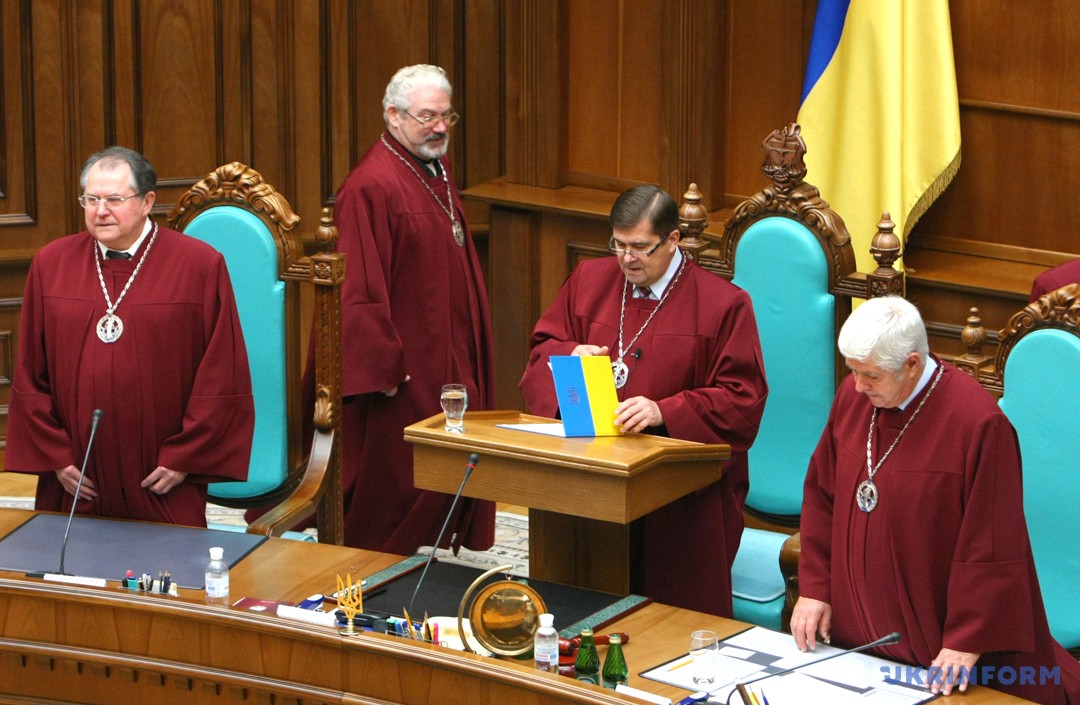
Some state agencies have been in reorganization for too long, and others, despite the agreement with European partners, have not yet been reformed.
The absence of laws about the president and the Cabinet of Ministers leads to attempts to take on someone else's powers. A mixed election system is difficult to combine with the principles of a parliamentary-presidential form of government, and a draft law recently submitted to the Verkhovna Rada, with the proposal to move to purely majority elections, will put an end to this system. The reform of decentralization of power stopped on the half way, and no strategic changes were made in this regard to the constitution.
The fashion for manual control corrupts people, suggests that such methods will also work at lower levels. So far, the state is still holding, on the basis of understanding by power and society of the need to be united in the fight against an external enemy. But sooner or later, perhaps next year, the risks of a loss of controllability by the state will force the political elite to make a choice - to stumble in the past or to try to break into the future.
Yevhen Yakunov. Kyiv


